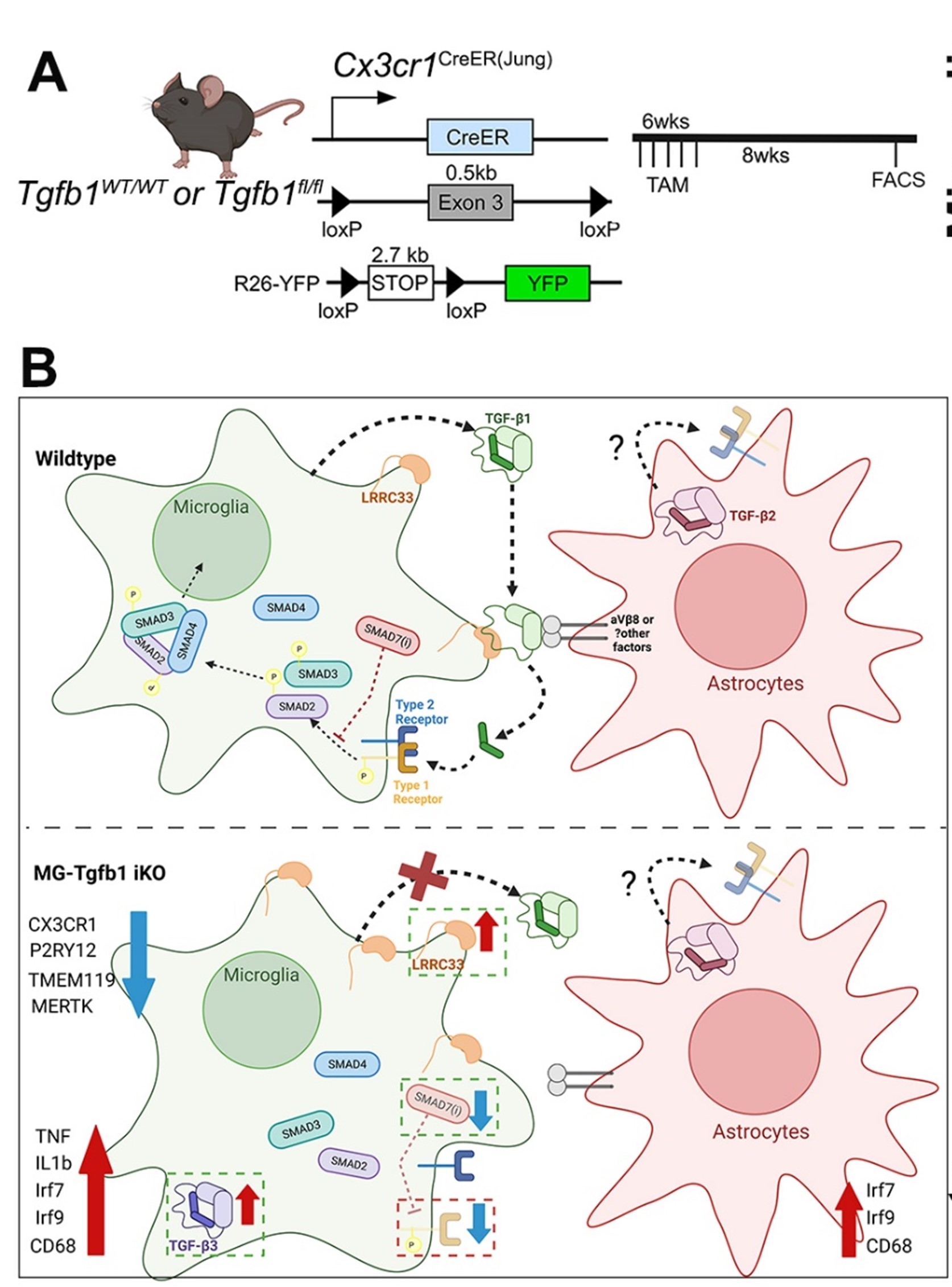You are here
Microglia-derived TGF-β1 Ligand Maintains Microglia Homeostasis via Autocrine Mechanism and Is Critical for Normal Cognitive Function in Adult Mouse Brain
Speakers
Abstract
The long-term goal of our lab is to understand key components of the CNS that determine neuronal survival and function and to improve functional outcomes from CNS diseases. One of our research interests is to characterize how microglia affect the function of astrocytes and eventually determine the survival of neurons under both physiological and pathological conditions. TGF-β has recently been suggested as a key factor in the maintenance of microglia homeostasis under physiological conditions in the adult brain. While TGF-β signaling is essential for microglial function, the cellular source of TGF-β ligand and its spatial regulation remains unclear in the adult CNS. Our recent study supports that microglia, not astrocytes or neurons, are the primary producers of TGF-β1 ligands needed for microglial homeostasis. Microglia (MG)- Tgfb1 inducible knockout (iKO) leads to the activation of microglia featuring a dyshomeostatic transcriptomic profile that resembles diseaseassociated microglia (DAMs), injury-associated microglia, and aged microglia, suggesting that microglial self-produced TGF-β1 ligands are important in the adult CNS. Interestingly, astrocytes in MG-Tgfb1 iKO mice show a transcriptome profile that closely aligns with A1-like neurotoxic astrocytes. Additionally, using sparse mosaic single-cell microglia iKO of TGF-β1 ligand, we established an autocrine mechanism for TGF-β signaling. MG-Tgfb1 iKO mice show cognitive deficits, supporting that precise spatial regulation of TGF-β1 ligand derived from microglia is critical for the maintenance of brain homeostasis and normal cognitive function in the adult brain.


